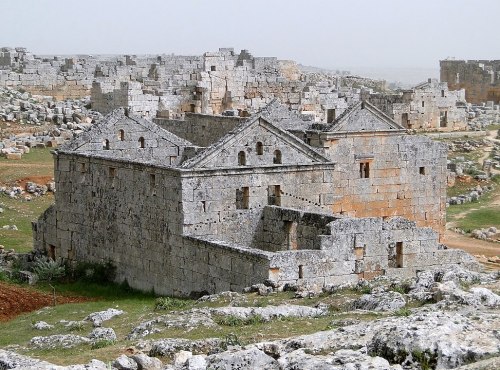
North-western Syria has about seven hundred “Dead Cities” or “Forgotten Cities.” They include villages, towns, and some cities that were mainly abandoned between the 700s and 900s CE.
Because they rest in an elevated area of limestone known as the Limestone Massif, which gets relatively little rain, the settlements are more or less still at surface level and well-preserved. There are three main groups of highlands on the Massif, each with their own Dead Cities. They provide us with insight into what life was like for prosperous agriculturalists in Late Antiquity and the Byzantine period.
The Dead Cities became a massive UNESCO World Heritage Site in 2011, although they have been largely inaccessible since 2013.
